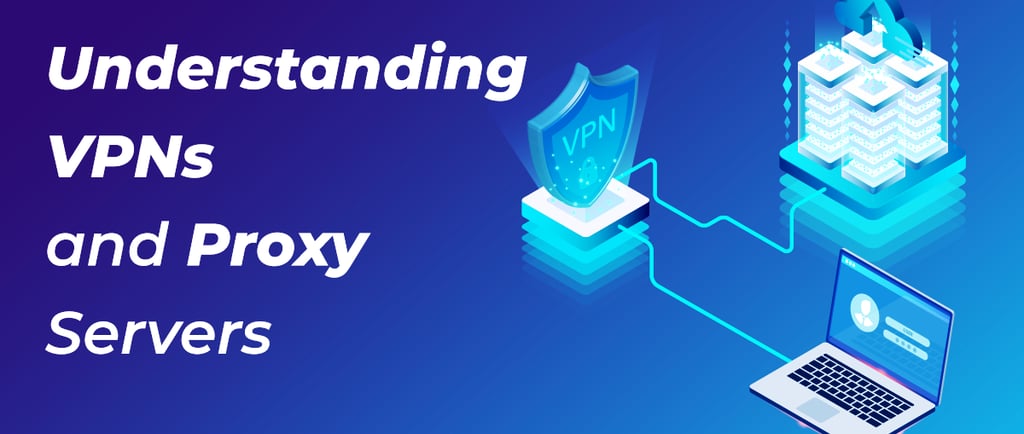Secure your Data with Inferno🔥, Use Code: INFERNO100
Understanding Proxies: Origin, Uses, Safety, and Comparison with VPNs
Discover the world of proxies, their origins, safety considerations, and how they stack up against Virtual Private Networks (VPNs). Learn why individuals and businesses alike utilize proxies for anonymity, content accessibility, and network performance.
CYBERSECURITY
Phillemon Neluvhalani
5/20/20242 min read


I'm sure u can agree with me that this days the importance of online privacy and security cannot be overstated. As internet users increasingly seek ways to protect their digital footprints, technologies like proxies and VPNs have become pivotal. Here, we delve into what proxies are, explore their origins, discuss their safety, and compare them with Virtual Private Networks (VPNs).
What Are Proxies?
A proxy server acts as an intermediary between a user's device and the internet. When you use a proxy, your internet traffic is routed through the proxy server before reaching its destination. This process masks your IP address with the proxy’s IP, thereby anonymizing your online presence to some extent and allowing you to bypass geographic restrictions or censorship.
The Origin of Proxy Servers
The concept of proxy servers originated in the early days of distributed networks, where they were primarily used to streamline and control the flow of information between different segments of a network. The first proxies were developed to cache web pages and improve load times for frequently accessed internet sites. Over time, they evolved to provide enhanced privacy and security features, becoming tools to protect users’ identities and data online.
Why Use Proxies?
1. Anonymity: By hiding your real IP address, proxies allow you to browse the internet without revealing your geographic location.
2. Content Accessibility: They enable access to geo-restricted content, letting users view websites and services unavailable in their region.
3. Security: Proxies can provide a basic level of security by separating the user directly from the websites they interact with, potentially blocking malicious websites.
4. Network Performance: They can improve loading times and bandwidth usage by caching web pages and files frequently accessed within a network.
Are Proxies Safe?
While proxies provide some level of anonymity, they are not entirely secure. The data passing through a proxy server can still be intercepted if the connection is not encrypted. Unlike VPNs, most traditional proxies do not encrypt traffic, which leaves the user vulnerable to data breaches and spying, especially on unsecured HTTP connections.
Proxies vs. VPNs
While both proxies and VPNs can mask your IP address, the similarities mostly end there:
Encryption: VPNs encrypt your internet traffic, ensuring that all data transmitted and received is secure from prying eyes, which is not always the case with proxies.
Network Level: VPNs route all your internet traffic through a secure connection, whereas proxies typically only route the traffic of your web browser or specific applications.
Performance: VPNs can sometimes slow down your internet connection due to the encryption process and the longer route your traffic takes via the VPN server. Proxies might offer faster access to websites due to less overhead.
Privacy and Security: VPNs are generally more reliable for privacy and security because of their end-to-end encryption and no-logging policies offered by many VPN providers.
Proxies offer a basic and straightforward solution for users looking to hide their IP addresses or bypass regional content restrictions. However, for those who prioritize privacy and security, VPNs are superior due to their robust encryption and comprehensive protection of all internet traffic. Whether you choose a proxy or a VPN ultimately depends on your specific needs regarding online security, privacy, and internet speed.


